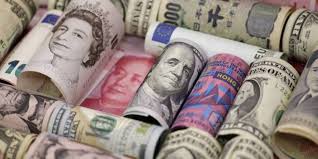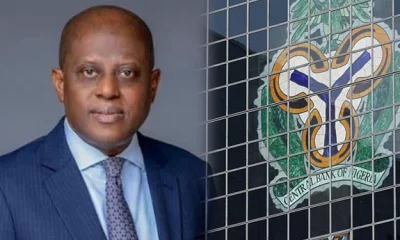Foreign investors are still staying on the sidelines, waiting for the naira to float freely, as the latest foreign exchange policy of the Central Bank of Nigeria has failed to restore confidence, National Daily has gathered.
Why anyone would invest a dollar in Nigeria when they could happily invest in Dubai or in other nations in Africa without currency issues, financial experts have argued
The CBN had on February 20 said it would provide direct funding to banks to meet the needs of Nigerians for personal and business travels, medical needs and school fees, effective immediately.
Although the weekly sale of forex to banks has helped to narrow the spread between the official and parallel exchange rates, pressure remains on the naira.
The naira, which posted some gains days after the CBN action, plunged to 475 per dollar at the parallel market on Friday from 450 on Thursday. It hit an all-time low of 520 to the dollar on February 20.
Industry experts, including the Chief Executive Officer, Financial Derivatives Company Limited, Bismarck Rewane, say the issue of investor confidence remains unaddressed.
According to Rewane, the policy framework, the implementation and the process have to be consistent. “Until you actually free up the market and do all the things that are required, you will have exchange rate movement that is not predictable,” he said.
According to Rewane, there is a question of liquidity and a question of confidence, and liquidity does not address the question of confidence. “You have to win the confidence of investors. Investors’ confidence is not won because you put some liquidity into the market for one week.”
The Global Chief Economist, Renaissance Capital, Charles Robertson, described the increase in liquidity in the forex market as helpful, saying, “Foreign investors want to know they can take profits on their investments when they bring money in.
“But investors are deterred by multiple currency rates; so, the interbank rate too needs to align with the parallel rate, and this has not happened yet,” he said.
Robertson said investors might be slow to return, noting that in mid-2016, some foreign investors put money into Nigeria when the currency was floated, but then found out that they were stuck again.
“They will be more wary this time. This new policy has been a positive move, but does not yet compare to the greater reforms in Egypt that have reportedly attracted $13bn back into the Egyptian banking system,” he said.
The President, Association of Bureau De Change of Nigeria, Mr. Aminu Gwadabe, said the fall of the naira to 475 per dollar was largely due to the increasing pressure on the transfer segment of the market.
“Also, the slow take off of banks is an impediment to the exercise. Some banks give a 30-day waiting period to consummate school fees transfer. The market is also witnessing a stronger demand from our neighbouring countries,” he added.
According to Gwadabe, the different applicable exchange rates and volumes by operators for the same product is also enhancing restriction to a single rate in the market. “If the CBN reviews the distribution channel and ensure that the BDCs serve the critical retail segment of the market and maintain intervention, the strength of the naira will continue in the days ahead,” he said.

 Health5 days ago
Health5 days ago
 Entertainment7 days ago
Entertainment7 days ago
 Crime6 days ago
Crime6 days ago
 Education1 week ago
Education1 week ago
 Health1 week ago
Health1 week ago
 Comments and Issues6 days ago
Comments and Issues6 days ago
 Football7 days ago
Football7 days ago
 Latest6 days ago
Latest6 days ago













